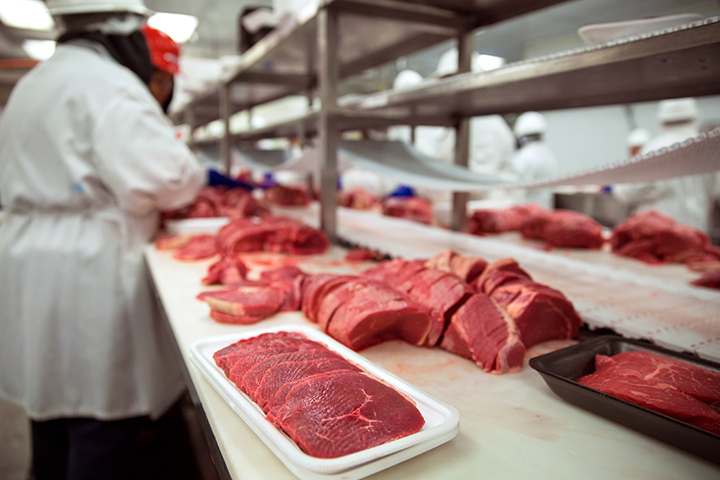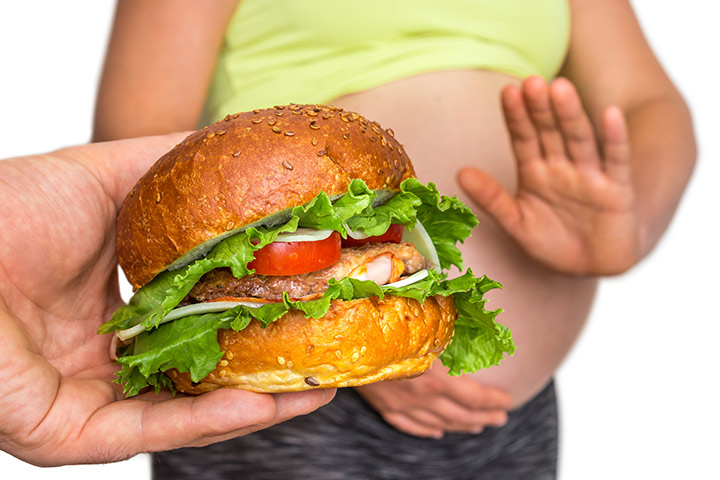
Image: Shutterstock
During pregnancy, a woman’s diet is given the utmost importance. And rightly so, considering the fact that everything a soon-to-be mother ingests contributes directly to the nourishment of the baby growing inside her. For the most part of her pregnancy, an expectant mom usually sticks to healthy and organic foods. But then, her pregnancy hormones might make her crave for processed or junk food at times. However, are these processed foods safe? How do they affect the overall development of the fetus?
What Are Processed Foods?
Processed foods add excessive amounts of salt, fat, and sugar to enhance their taste and extend their shelf life. Frozen meats, canned vegetables, processed cheese, ready-to-cook fries, etc. all come under harmful processed foods. Some, however, like pasteurized milk or seed-compressed cooking oils require processing to make them suitable for use and destroy harmful bacteria (1).
What Studies Say
With autism being on the rise, a recent study has attempted to answer what could probably be one of the reasons behind it. The study was carried out by the researchers at the University of Central Florida (UCF). They found that neural stem cells underwent cellular changes when exposed to high levels of propionic acid, which is used in processed foods to prevent mold formation and extend shelf life of packaged foods including bread and cheese. Dr. Saleh Naser, Gastroenterology research specialist at UCF initiated the research after coming across a report that showed autistic children often suffered from gastric issues. This made him see a possible link between the consumption of processed foods and autism (2).
The team of researchers at the UCF exposed the neural stem cells to high levels of propionic acid in the lab. They found that propionic acid first disrupted the fine balance between the brain cells – neurons and glial cells. Glial cells are necessary to develop and protect the neuron function. However, too many of them can actually disrupt the neuron connectivity and cause inflammation, which is often noted in the brain of an autistic child.
Secondly, the pathways that the neurons use to send messages to the rest of the body was also shortened or damaged due to the high levels of propionic acid. In the end, the reduced neurons and the damaged pathways result in impairment of the brain’s ability to communicate. This, in turn, causes development disorder and symptoms that are often associated with autism (3).
Dr. Naser had also come across previous, related studies that concluded that an autistic person’s gut microbiome was different. In that study, researchers were looking at ways to reduce the instances of gastric issues in autistic individuals. They had studied the stool samples of the participating individuals and found that the good bacteria in their gut was significantly altered (4). According to Dr. Naser, the lab results found high levels of propionic acid in the stools samples of the autistic individuals participating in such studies (5).
What makes us want to believe the researchers at UCF further is another study which highlighted the long-term benefits of Microbiota Transfer Therapy. In this therapy, researchers performed a combination of bowel cleansing, antibiotic treatment, stomach acid suppression, and healthy fecal microbiota transfer. They observed that this led to significantly improved gastrointestinal functions, improvement in autism-related symptoms, and also the gut microbiota (6).
For long, people have viewed the consumption of processed foods with suspicion. It is usually considered as a “convenience food” for those on the go and too pressed for time to dish out a full-fledged meal. We are yet to come across a full-fledged research that highlights the benefits of such foods. That said, there are no major studies that actually say they are completely bad either. While the jury about the safety of such foods might still be out there, right now it seems prudent to avoid or limit the consumption of processed foods at least until the time you have delivered. For, what are a few months of abstinence from your favorite food compared to the good health of your baby for a lifetime!
















